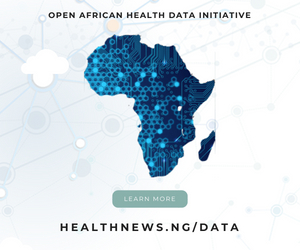Ghana is the second African country to be introducing drone-enabled delivery of medical supplies although several stakeholders in the country openly expressed reservations about the initiative.
The initiative now supplies 20 percent of Rwanda’s blood supplies outside the capital Kigali.
Following the globally acclaimed introduction of delivery of medical supplies via drones in Rwanda through a partnership between the government and Zipline, Ghana in West Africa has become the next African country where the service will be introduced although several stakeholders in Ghana are reluctant about the appropriateness of the innovation in solving health challenges in the country’s health sector.

Novelty is not innovation, according to IMANI Center for Policy and Education. Following its review, it concluded that the Ghana Health Service – Fly Zipline Ghana drone health supplies delivery programme is novel, but the current strategy will end up improving nothing about Ghana’s health system – if care is not taken. Instead of going with drone delivery, it recommended a van system instead.
“Using the van delivery mechanism, the full cost per 2kg of blood (~4 pints) delivered to a patient from a facility within an 80km radius comes to $0.75. The “drone premium” is thus nearly $18 per blood bag. A cost higher than the retail price of one pint of blood in those Ghanaian facilities where blood is sold,” IMANI stated.
The government however disagreed.
“Everybody, everywhere should have quality care and Ghanaians are going to use drones to deliver drugs and services,” announced Nsiah Asare, director general of the government’s Ghana Health Service. “We believe that it is the most efficient, effective and cheapest way to deliver to the remotest and underserved areas in the country.”

In the parliament, several members are also opposed to the project.
“You can’t even assemble an array of ambulances to meet the health needs of our people, you are talking about drones”
Inusah Abdulai Fuseini, minority spokesperson in parliament
The Minority in Parliament described the move as “misplaced priority” and called for a presidential intervention to halt the consideration of the service agreement between the government and Zipline International Incorporated.
Kobby Blay, a doctor who works at a rural community in the southern part of Ghana also thinks the drones shouldn’t be a priority. “The drones may be necessary at a point but on a large scale for now it is not the case,” he told DW.
But the opposition was not enough to stop the project which got the nod of the majority and Ghana’s parliament has now given the green light to the project with the US-based company Zipline. The company plans to deliver blood, drugs,vaccines and other medical supplies to health centers in remote areas. The procedure: the health center sends a request for supplies via text message; the supplies are packed and the drone launched; in the next 30-45 minutes, the drone drops the package which is slowed down by a parachute.
“If a person comes in and needs blood at 1 a.m., the hospital has two options,” explained Daniel Marfo, who is in charge of systems integration at Zipline Ghana. “If they do not have the blood in stock, they can order blood and hope that it gets there in time. The other option is that they can refer them to another facility.” In case of accidents or blood loss after giving birth, timely deliveries of blood can be lifesaving.
According to Marfo, once the project is approved by Ghana’s procurement authority, it could take off within the first quarter of 2019.
Marfo agreed that Ghana is much bigger than Rwanda and Zipline has to think of how it scales quickly, how it thinks of deploying its service more quickly and efficiently.
Together with the ministry of health, the company mapped out its distribution sites, which will house emergency stocks of medicine and supplies and function as the launch pads for the drones.
The first of four sites is located in Suhum in eastern Ghana. “You have communities that need to cross by boats which move only once or twice a day to get to those places,” Marfo explained. Within the first year, a second site is planned. The drones only fly within a radius of 80 km and the first distribution site is expected to cover 500 health facilities.
The Ghanaian government is also throwing its full weight behind the initiative. Information Minister Kojo Oppong Nkrumah said the drone delivery network is designed to complement effort at ensuring medical services are extended to the doorstep of every Ghanaian.

He said the drone delivery network will ensure the delivery of over 140 products, including essential medicines, anti-retroviral drugs, vaccines, contraceptives and medicines for the treatment of malaria among others.
“It is designed to be a complement, a complement to the many efforts that are been made to ensure that we extend medical services to the doorstep of every Ghanaian. Remember that over the years we have done a number of things including the chips compound concept, the health centre concept, the polyclinic concept and then the referral processes as well” he said.
“We want to as much as possible get medical services as close as possible to the people. And so this is designed to be a complement to the many efforts that are ongoing, so that if you are in a particular area where this health logistics maybe are not getting there on time, the Ghana health service has warehouses in this four delivery areas”

















